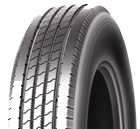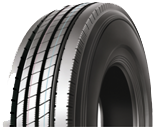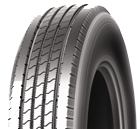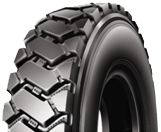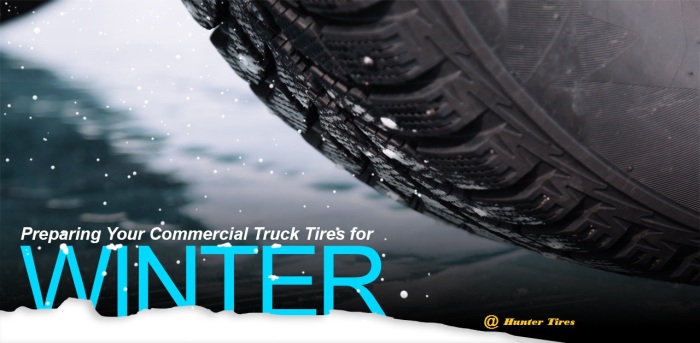Commercial truck tires should be chosen carefully because they are used on trucks that are used in businesses or commercial purposes. That is why truckers exert extra effort in the quest to find th…
Author: miklejaksone
How Buying Commercial Truck Tires ? Save Your Money
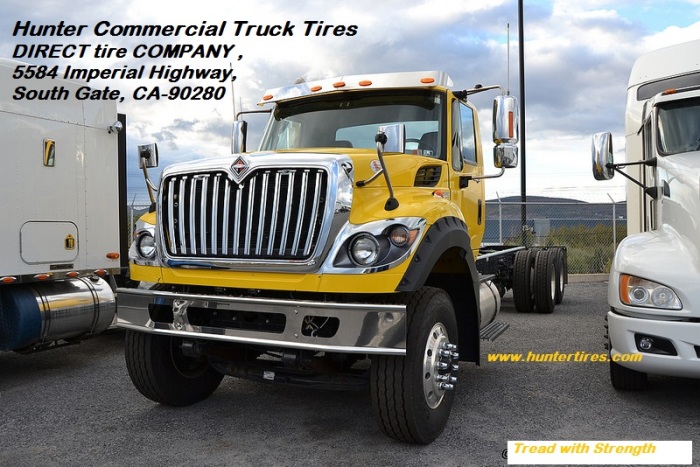
Commercial truck tires should be chosen carefully because they are used on trucks that are used in businesses or commercial purposes. That is why truckers exert extra effort in the quest to find the right ones for their trucks. The best tip ever when it comes to buying Hunter commercial truck tires is to go all out and spend more for the best tires. It may seem odd to advice you to buy expensive truck tires and tell you that you can save money doing so, but it is possible.
Here’s why:
Buying quality tires will save you money because they last longer and are more durable than inexpensive tires. This means you do not have to keep buying new tires every time inferior tires break down. Buying more often is more expensive than buying expensive ones now and not buying again for years after that.
Inferior tires may be cheaper but once it breaks down, it will cost you more than buying expensive tires in the first place. You know Commercial trucks often carry important loads and if your truck breaks down, you might not be able to make that important delivery, thus, making you lose money and clients as well. This would be bad for business and may make you lose more than the cost of expensive tires. Quality tires can enhance the performance of your truck and can make deliveries on time or even earlier.
Expensive truck tires can make your travel smoother because it has better treads. Quality tires have better rolling resistance that is why you lessen the use of acceleration during travel time, and you save money on fuel as well. Remember that fuel prices are very unpredictable and saving money on fuel is every driver’s dream come true.
But it is not enough to have quality and expensive tires for your commercial trucks. You have to take care of your commercial truck tires as well. Doing so will make them last even longer. You have to make sure they are properly inflated at all times. If you feel a little slack, pump them immediately to avoid accidents. Check your tires regularly for any wear and tear. Remove objects that might have stuck during travelling to prevent them from getting buried deeper. Commercial truck tires are easy to purchase nowadays especially with the help of the internet. You can find great deals online and compare prices and features at the comfort of your own home.
It’s has been writing online for several years. Check out his latest interest on commercial truck tires He has created a website as a dedicated resource for the best product deals for tires
Commercial Tires

Suitable for long journey, applied to steer wheels for highway and good road condition. Unique tread design and compound for lower heat and lower rolling resistance and minimized gasoline consumption. Horizontal rib design offers the top guiding and stability at high speed service, which also provides the excellent stone ejection performance and super grip on wet road @ Hunter Tires
HT876T Trailer Heavy Duty
Smartway certified eco friendly trailer tire for long haul “Optimum tread design guarantees even wear in trailer axle positions” Rib pattern, extra sideslip resistance, pitch pattern designed.Low noise.
Available sizeRelation
Choose the Right Commercial Truck Tires
Before winter weather settles in, make sure you’re using the right kind of commercial tire. Particularly if you’re going to be driving through a lot of cold areas, you need to prioritize safety above mileage. It can be hard to take on that extra cost, but it’s not worth endangering yourself and others on Hunter Tires the road in order to save on fuel. Tires with rib tread are not going to provide you with enough traction in snowy, icy, and wet conditions. If you’re running rub tread tires for all positions, you should switch to lug tread tires for at least your drive tires. The deeper lug tread will give you better traction and help to prevent your truck from sliding on the road.
PREPARING YOUR COMMERCIAL TRUCK TIRES FOR WINTER
In winter weather, your commercial truck tires can be the biggest factor in keeping you safe on the road. Commercial Tires that maintain good traction will go a long way in preventing sliding in sn…
PREPARING YOUR COMMERCIAL TRUCK TIRES FOR WINTER
In winter weather, your commercial truck tires can be the biggest factor in keeping you safe on the road. Commercial Tires that maintain good traction will go a long way in preventing sliding in snowy and icy weather. Before winter arrives, make sure that you fully prepare your commercial tires to ensure that you and your truck are as safe as possible.
Choose the Right Commercial Truck Tires
Before winter weather settles in, make sure you’re using the right kind of commercial tire. Particularly if you’re going to be driving through a lot of cold areas, you need to prioritize safety above mileage. It can be hard to take on that extra cost, but it’s not worth endangering yourself and others on the road in order to save on fuel. Tires with rib tread are not going to provide you with enough traction in snowy, icy, and wet conditions. If you’re running rub tread tires for all positions, you should switch to lug tread tires for at least your drive tires. The deeper lug tread will give you better traction and help to prevent your truck from sliding on the road.
Rotate Commercial Tires
If you are due to rotate your tires, make sure you do it before the winter weather arrives. It’s important to make sure your tires are wearing evenly. Rotation will help to maintain your tire’s treads, providing better long-term traction. It will also extend the life of your tires and help to keep fuel costs down. These benefits make rotating your commercial tires one of the best, yet simplest, things you can do to maintain your truck.
WHEN TO ROTATE COMMERCIAL TRUCK TIRES
Give Your Commercial Tires a Pre-Winter Inspection
If you’re a responsible truck driver, you probably inspect your truck regularly. As winter approaches, make sure that you give your commercial tires an extra thorough inspection. Start by measuring the tread depth in multiple locations around each tire. The tread should be at least 4/32” for steer tires and 2/32” for other tires. If any of your tires are getting close to that limit or are already beneath it, you should consider replacing them. A deep tread is your best friend on slippery winter roads. You should also check the tread for uneven wear, damage, or punctures. Make sure there is no damage to the sidewalls and that each tire is properly inflated. Conducting this check ahead of time will ensure that your commercial tires will be safe during the winter. It’s also much easier to thoroughly check tires before all the snow and slush sets in. If you are careful and replace your tires when necessary, you’ll be as prepared as possible to safely deal with tricky winter weather.
PROTECTING YOUR COMMERCIAL TIRES IN HOT WEATHER
 During the summer, hot weather can make truck driving more challenging. Keeping the A/C running and having cold water on hand can make things more comfortable in the cab, but the heat can still take a toll on your equipment. The tires, engine, and belts can all suffer from overheating. Commercial tires in particular can overheat easily, as they are in constant contact with the hot road and heating up from continuous friction. To keep things running properly and prevent a blow out, there are a few extra precautions you can take.
During the summer, hot weather can make truck driving more challenging. Keeping the A/C running and having cold water on hand can make things more comfortable in the cab, but the heat can still take a toll on your equipment. The tires, engine, and belts can all suffer from overheating. Commercial tires in particular can overheat easily, as they are in constant contact with the hot road and heating up from continuous friction. To keep things running properly and prevent a blow out, there are a few extra precautions you can take.
Checking Truck Tire Pressure
Checking your tire pressure is especially important during extreme weather. Use a tire gauge to make sure your tires are properly inflated. Commercial tires that are over or under-inflated are more likely to blow. You should check your tires before beginning your trip and at the end of your trip, once the tires have had a chance to cool down. You can also check your tire pressure while stopping, but you’ll need to give your tires a chance to cool down first. When the tires heat up, air pressure increases, so you may notice higher air pressure in the middle of your trip. Do not let out air to bring the pressure down because then your air pressure will be too low when your tires cool.
Stop to Let Your Truck’s Tires Cool Down
The heat and resulting increased air pressure make blowouts significantly more common over the summer. Your commercial tires may even be at risk of catching fire. To prevent these problems, make it a habit to stop about every 2 hours or 100 miles, whichever comes first. This will give your tires and engine a chance to cool down. If a tire feels too hot to touch comfortably, it needs to cool more. If your tires are extremely hot or you don’t want to wait for them to cool down naturally, you can run cold water over them to bring their temperature down. These stops are also a good time to look for any punctures, damage, or other problems. You’re going to need to drink more water to stay hydrated on hot days, so these regular stops are perfect for bathroom breaks.
Commercial Tire

Suitable for low plateform, specialty trailers and truck. Dual compound rubber helps ensure cool operating temperatures while upper tread abration resistance helps keep wear rates low. Unique tread pattern design minimizes side sliding on wet road.
Perfect Commercial Truck Tires For Sale
COMMERCIAL TRUCK TIRE INSPECTIONS – WHAT’S INCLUDED?
Whether you are heading in for an annual commercial truck inspection or have been selected for a safety inspection on the road, it’s important to be prepared by knowing what a commercial tire inspection includes. Regulations for inspections vary slightly by state, but all inspections will follow the same basic procedure that covers all parts of the truck, driver safety, and authorization.
When it comes to the tires, the inspection is highly detailed. Make sure that you know what a commercial truck tire inspection includes so that you can include each element in your own pre-trip inspections. That way you can make sure you never end up facing fines or time off the road. It’s a good idea to familiarize yourself with the regulations of all the states you drive through, but the following summary will provide you with a general outline of what vehicle inspectors will look at.
Tire Labels
An inspector is going to check your truck tire’s labels to make sure that there are no violated restrictions on their usage. Truck tires with labels such as “not for highway use” or “farm use only” will earn you a citation. This means you need to be careful about using temporary spares and making sure to change them for the appropriate tires as soon as possible. In addition, inspectors will check that the weight you’re carrying doesn’t exceed the tires’ load limit.
Tire Wear
One of the major things a truck inspector will do is check all of your tires for wear. Any tire that has less than 4/32 inch of tread may be considered a violation. Inspectors will also look for any areas of localized wear where the tire’s cord, ply, or belt is showing through the tread.
When to Rotate Commercial Tires
Tire Leaks, Cuts, Bulges, etc.
Commercial truck inspectors will look for any visible cuts, cracks, bulges, knots, and bumps. A cut that exposes any belt or ply material is particularly problematic. They’ll be looking for signs of tread or sidewall separation, and they’ll be listening for tire leaks. In addition, inspectors will look for signs that you have repaired a blowout or cut without replacing the tire.
Tire Mounting and Inflation
In order to pass a commercial truck inspection, your truck’s tires must be properly mounted and inflated to the right pressure. Make sure that you have tires of the same size on the same axle and that your tires do not touch any part of the truck or extend past the fender.
What Happens After an Inspection?
If you go in for a periodic inspection or are subjected to a roadside inspection, hopefully you will pass without any violations. If the inspector does find defects, however, the result will vary depending on how serious the defects are. If there are serious defects, your vehicle will be placed out-of-service. You will then need to complete repairs before returning to the ride. In the case of less serious defects, you will be given a grace period to correct them. You’ll need to have the problems repaired and submit a report to the relevant state’s Department of Transportation. Depending on the defect and the state regulations, you may also be issued a traffic citation and/or have to pay a penalty.
In order to avoid these negative outcomes, make sure to stay informed of all commercial truck inspection regulations and keep your truck and tires in proper condition.
Commercial vehicle inspections, even if they are time-consuming, are essential for keeping commercial trucks, their drivers, and the roads safe.


